Everything is politically correct in Canada. Being next door to the USA, Toronto gets its political correctness from our neighbor much before the rest of Canada does. That means we get their garbage sooner as well, metaphorically speaking.
The latest word for death, slowly gaining popularity in Toronto is "transition". Although I am not a great fan of political correctness unless rooted in good reason, I think the word transition makes sense if you believe in an after-life. On the other hand the word Afro-American or Afro-Canadian is irrelevant to my mind. An American or Canadian black would, if he has the choice, nothing to do with living in Africa. Therefore me, I cling to Black and none of my black friends protest it.
Seniors in Toronto are a privileged lot. They get all sorts of substantial discounts, they have an excellent lobby group called the CARP (Canadian Association of Retired Persons) that has considerable political clout in Ottawa. The Canadian population after all is aging fast and the average age of a working Canadian is 49. Compare that to the Indian age at 19. Even considering the fact that an Indian is considered over the hill at 50 while his Canadian counterpart is considered young at 65, that is a big age gap.
Torontonians are considered seniors at 65 though the privilege is being extended to younger and younger people all the time. For example here in Scarborough there is a Goan club called the TEGSA (Toronto East Goan Seniors Association) which admits people over 55. Things like that. This club by the way, is so well managed and has so many different types of functions, one could very well say they do better than the ten times larger GOA (Goan Overseas Association), with all respect to that august institution.
It is not uncommon to see men and women at 85 driving large cars. Even after 80, no meaningful eye tests are done and as long as the family physician does not put an adverse remark in the provincial records about the person not being fit to drive, there is no obstacle to the senior driving. I am terrified of seniors on the roads and give them a wide berth ever since I sat in a relative's car and discovered he had no peripheral vision. In other words he would almost bump into persons crossing the road as he could only watch the road straight ahead. No too long ago there was an incident in Mississauga where a senior bumped into a jogging lady and dragged her under the car for about 300 metres all the way to the driveway of the home without realizing what had happened. Saiba Bogos I say, even though I know I may be a senior one day myself, if I don't make the Great Transition before that.
Mostly, Goan seniors are financially well heeled. The mortgage is paid off, leaving a residential asset of $400K or more, on average. They have savings, a company pension perhaps and goodly life-long payments from the government by way of Old Age Security and the Canada Pension Plan. They are entitled to free prescription drugs at 65 and of course free health care of a high level is available to the entire population.
Seniors go all the time on casino trips, vacations to Goa, China, Cuba and the Caribbean. Not to mention "pilgrimages" to some Marian devotional centres in the US that will not be complete without a detour to Atlantic City or Las Vegas. So come the time of the Great Transition, can one blame the senior who exhibits much reluctance to make it?
Dying (to use the common term) in Toronto is a class act. Or more to the point what happens after dying. The Canadian ritual of a funeral is something I have never witnessed either in India or in the Mid-East where I lived for some time. There the body is disposed of as if the ceremony needs to be completed as soon as possible. People cry even if they are not disposed to, and god forbid as in the times I remember, the habit of hiring professional mourners. That I must admit was only in Goa where the funeral used to be mainly comprised of crying, walking the coffin in the heat of the day to the church and then imbibing large amounts of feni as if to anesthetize oneself to all memories of the dear departed. No doubt the soul of the transitioned would have approved of the feni drinking if not of the entire ceremony, crying and all. The fact that even his worst enemies cried when they should have been laughing, added some spice to the whole affair.
Back to Toronto.
The funeral parlor plays the central role and no matter how ill prepared the relatives of the transitioned were, the folks at the parlor arrange everything as if they were prepared one year in advance. They arrange for the body to be brought to the parlor and they prepare it in awesome style. I have seen seniors whom I would not care to meet in dark alleys being transformed to look like St Peter's angelic assistants. That's how good the morticians are. Of course like almost every occupation in Canada they have to be licensed. Once, being bored of the visitation taking place above, I moved to the lower level where I met the guy doing the job and we hit it out with each other. He was a young Colombian who filled me in with his colorful experiences on the job that tickled me pink.
First is the visitation. Usually held on two evenings, from 7 to 9 pm, it gives the mourners a chance to pray for and wish goodbye to the dear departed if one cannot make it to the funeral. The parlor itself consists of 4 or 5 visitation rooms that on a busy day, are all filled with caskets and people. It is there in that room that you will see the Toronto Goan mourner in full form. There is only a minimum pretense of sorrow and seriousness. Five minutes after entering and viewing the easels filled with photographs of the person at his various milestones, they will retire to the back of the room and chat and laugh like it was C. D'Souza's restaurant outside Sonapur church in Goan Dhobitalao. There will be a pat on the back of Joaozinho who
has come all the way from California to pay respects to his late friend, with bonhomie and vigor, taking the ensuing conversation to paths that have nothing to do with the visitation.
On the closely following Saturday is the funeral mass at some lovely church where the coffin is laid out on the main aisle and the children and grandchildren say a few words either during or after mass. This is the inspiring part of the whole dying process and makes one proud of one's Goan children not matter how un-Goan they have become.
The mass is followed by the car trip to a nearby cemetery where each car is given a visible card to put out on the front, identifying it as a funeral procession car. It is a lovely sight with two Toronto policemen on motorcycles in full uniform regalia leading the cortege and two police cars behind. They will stop traffic even on green and lead the cars in state. Ever so often they will reposition themselves with the cars in front and the bikers behind.
Toronto cemeteries are the best I have ever seen. All well maintained, there are sections that have their own significance. Plots for priests, plots for war vets, plots for those who have given generously to start the cemetery. However unlike Goa where I have seen plots demarcated for first class and second class, Toronto cemeteries are first class for all. The plots are quite expensive ranging from $6K (if you pay while living) to $20K or more depending on which view or size the family wants, but all uniform in beauty. A very far cry indeed from the Catholic cemetery in Jogesheshwari where my mother had to be buried a few years ago as her seniors home was in that parish.
After the short burial ritual is over, with tears gently wiped from eyes, the people return to the Church Hall. Before I go further, I must note with appreciation the fact that the casket is lowered only after all the people leave the grounds. That to me is a thoughtful way of saving the closest family members from the act of separation - "to dust thou shalt return" - which could be undoubtedly traumatic with its significance of finality.
This last part is friendly and fun. The family is now centered on the celebration of life rather than the ritual of death. Mourning will come soon enough, but now is the time to recall the best memories of the one who has transitioned. Funny speeches are made, toasts are raised and laughter is brought to the fore. The tables groan under
delicious goan snacks. My perennial favorites are the green chutney sandwiches, beef croquettes and shrimp patties with the taste that only Goans can create.
The whole thing will have cost the family at least $15K and oftentimes much more. The govt will pitch in with $2500 if the person had worked for however little a time and was entitled to the CPP. Most seem to be able to afford these amounts. Most of them while living would have made provision for insurance that would have paid for it.
Another Toronto Goan departed, another wed and another born. As my Bombay friends would say "hatch, match and despatch". Life goes on for the living and who knows, in their own way for the dead as well. The void left by a friend, a sibling, a parent or a spouse will hopefully become fond memories with time.
Subscribe to:
Post Comments (Atom)

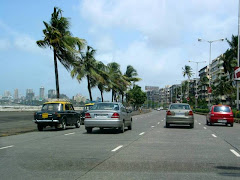
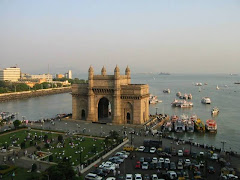
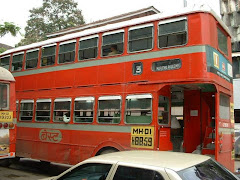
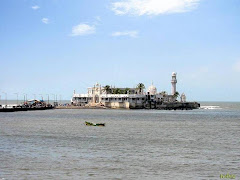
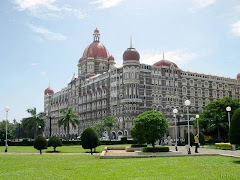
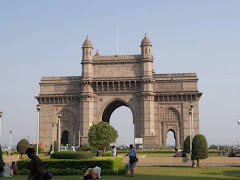
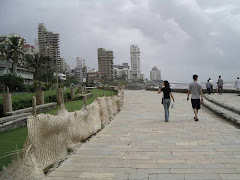
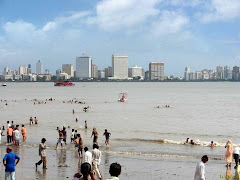
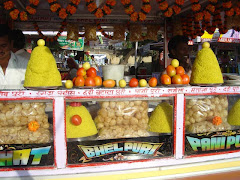
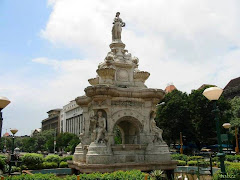
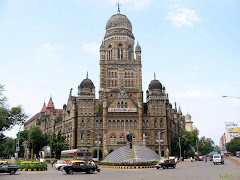
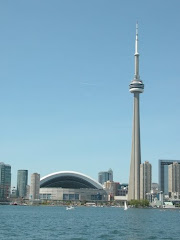

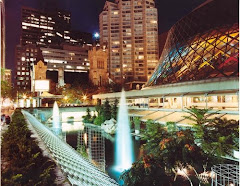

No comments:
Post a Comment